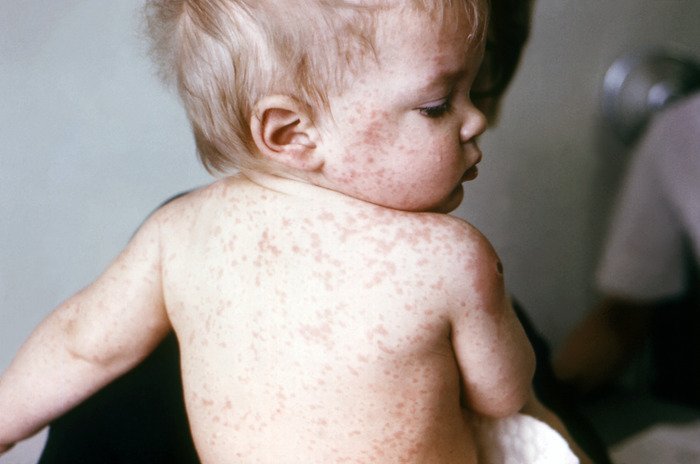Measles still kills 430 children worldwide each day
ATLANTA, Dec. 5 (UPI) -- Fifty years after a vaccine against measles was introduced, the disease still kills 430 children worldwide each day, U.S. health officials say.
Dr. Mark J. Papania of the Centers for Disease Control and Prevention and colleagues reported U.S. measles elimination, announced in 2000, was sustained through 2011. Elimination is defined as absence of continuous disease transmission for greater than 12 months.
Papania and colleagues warn international importation of measles continues and U.S. doctors should suspect measles in children with high fever and rash, "especially when associated with international travel or international visitors." U.S. physicians should report suspected cases to the local health department, Papania said.
Before the U.S. vaccination program started in 1963, measles was a year-round threat in the United States. Nearly every U.S. child became infected; each year 450 to 500 people died, 48,000 were hospitalized, 7,000 had seizures and about 1,000 suffered permanent brain damage or deafness, the CDC said.
Usually there are about 60 U.S. cases per year of measles, but this year there was a spike in U.S. communities -- some 175 cases and counting -- virtually all linked to people who brought the infection home after foreign travel, the CDC said.
"A measles outbreak anywhere is a risk everywhere," Dr. Tom Frieden, director of the Centers for Disease Control and Prevention, said in a statement.
"The steady arrival of measles in the United States is a constant reminder that deadly diseases are testing our health security every day. Someday, it won't be only measles at the international arrival gate; so, detecting diseases before they arrive is a wise investment in U.S. health security."
Eliminating measles worldwide has benefits beyond the lives saved each year, Frieden said. Actions taken to stop measles can also help us stop other diseases. The CDC and its partners are building a global health security infrastructure that can be scaled up to deal with multiple emerging health threats.
"There may be a misconception that infectious diseases are over in the industrialized world. But in fact, infectious diseases continue to be, and will always be, with us. Global health and protecting our country go hand in hand," Frieden said.
Today's health security threats come from at least five sources:
-- The emergence and spread of new microbes.
-- The globalization of travel and food supply.
-- The rise of drug-resistant pathogens.
-- The acceleration of biological science capabilities and the risk that these capabilities may cause the inadvertent or intentional release of pathogens.
-- Continued concerns about terrorist acquisition, development and use of biological agents.
The findings were published in JAMA Pediatrics.















